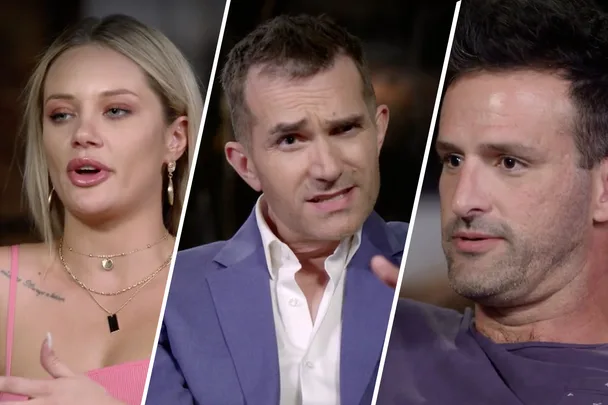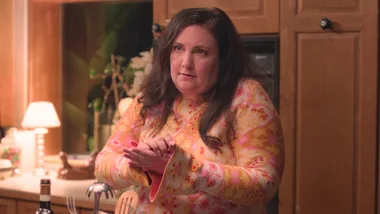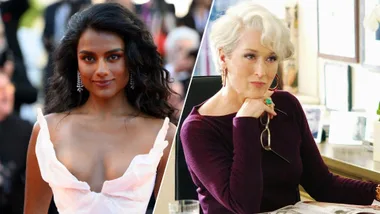If you’ve been following along to Married At First Sight this year, following Sunday night’s episode you might have had the same thought I did – at what point do the experts need to step in and take responsibility for the contestant’s mental wellbeing, and for that matter, what is their protocol on duty of care.
For those who haven’t been keeping up to date, at the dinner party the previous week, Jess and Dan (who are not paired together) acted on their “chemistry” and kissed, leaving their respective partners Mick and Tamara none-the-wiser. Experts John Aiken, Mel Schilling and Dr Trisha Stratford watch on as the infidelity takes place.
“Are we seeing some boundary crossing,” John says, while Mel and Trisha nod in agreement.
RELATED: We Need To Focus On Reality TV Contestant’s Mental Health
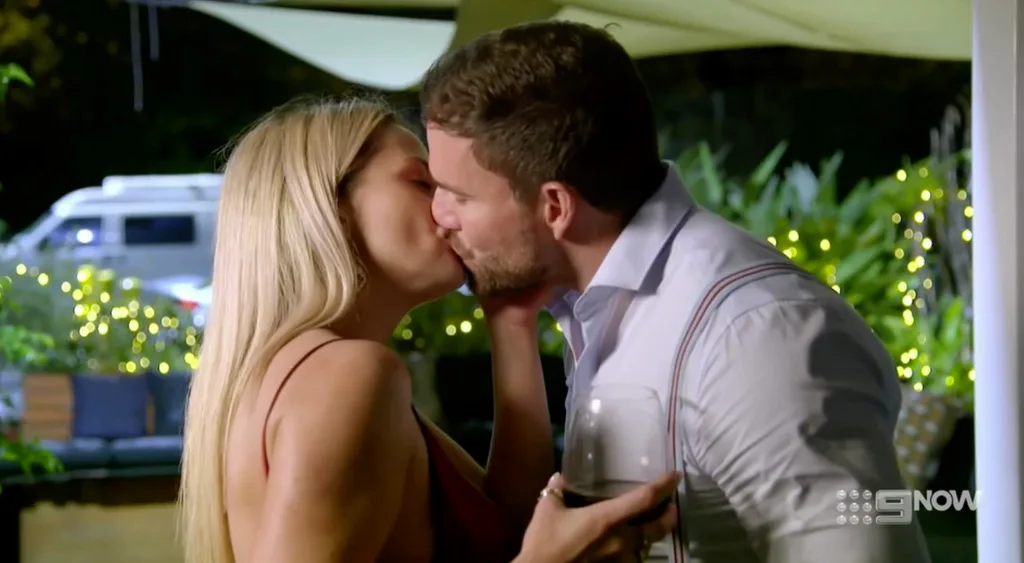
Sunday night’s commitment ceremony then saw Jess and her actual husband Mick sit in front of the experts and explain why their relationship isn’t working. Besides Mick’s use of disrespectful language to describe Jess’ family (including calling her sisters and friends c–ts, her father a drunk and her brother a f-ck head), it’s Jess’ eyes for another groom that inevitably led to the breakdown of their relationship. In the social experiment, if one person writes “stay” and the other writes “leave”, both parties must stay for another week to try and mend the relationship. So while Mick writes “leave”, Jess writes “stay” so that she can pursue her relationship with Dan.
Mick is clearly distraught by her decision, calling it “unbelievable” and saying his bride is also “full of sh-t”.
What’s most disturbing though, is that instead of the experts taking control and stepping in to consider Mick’s mental wellbeing for when he discovers Jess’ behaviour in the coming weeks, which will undoubtedly become a main storyline, they say he must travel with her to give her family a second chance.
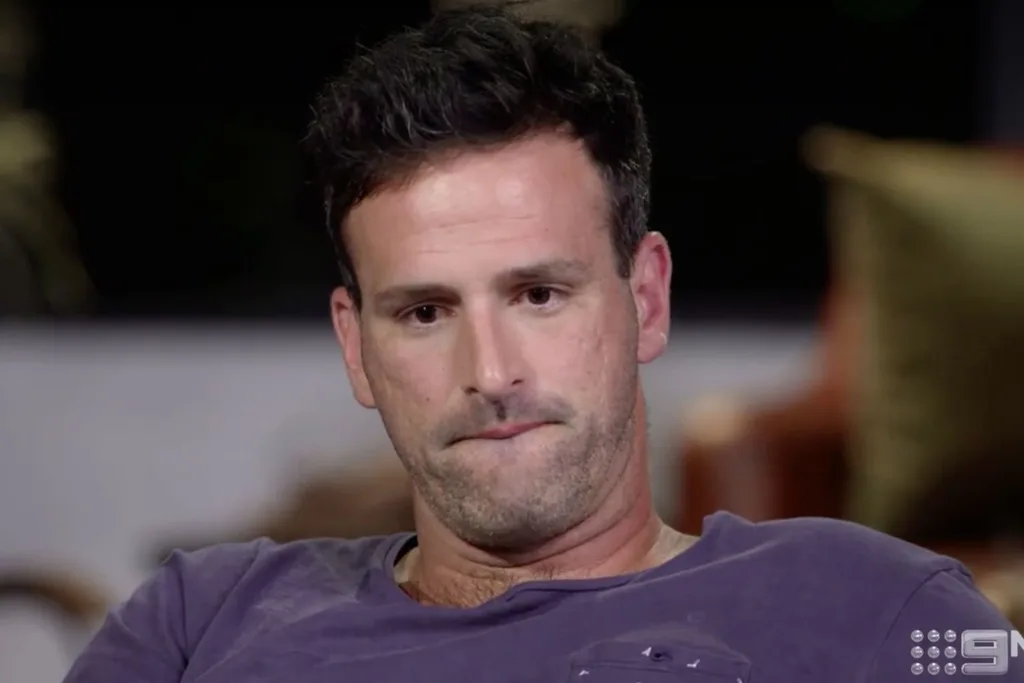
“You this week, Mick, are going to meet Jess’ family,” John tells the clearly upset Mick. “And we’re going to watch with interest at what happens.”
“It’s surprising but we wait and see,” he adds with a laugh.
The predictable storyline of whats to come begs the question – what is the expert’s duty of care, and why do they continuously refuse to act on it before its too late?
RELATED: Why This Scene On ‘Married At First Sight’ Demonstrates How Dangerous Gaslighting Can Be
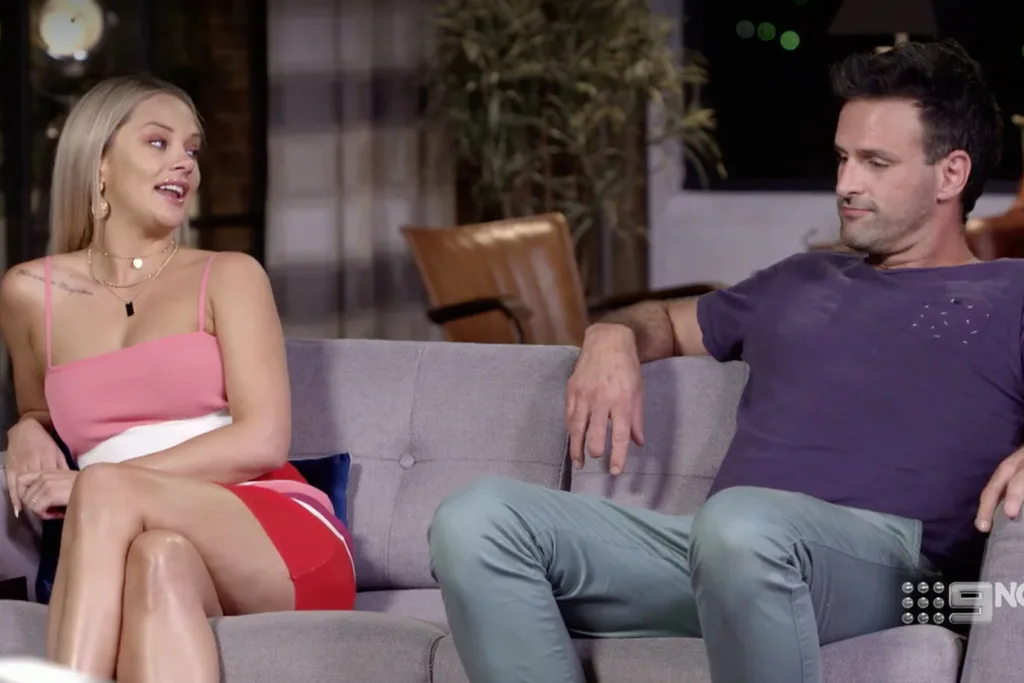
So what exactly is duty of care when it comes to reality television? “To most people, Duty of Care is the legal duty to take care not to cause harm to another person what could be reasonably foreseen,” Lysn psychologist Noosha Anzab tells marie claire. “In the realm of mental health, Counsellors, Psychologists and Psychotherapists are usually bound by a strict guideline which promotes moral principles and sets about both expectation and understanding of ethical professional conduct.
“Essentially, it’s our duty as practitioners, to take our clients wellbeing very seriously, taking every measure to ensure that our clients don’t suffer physical, emotional or psychological harm during our interactions. It is our duty to not exploit our clients by any means, instead of seeing intrinsic value in our clients and equally respecting their rights whether that be their human rights, legal rights or even their moral rights.”
When It Comes To Creating Reality TV, Should Producers Place Emphasis On Duty Of Care?
“Considering it’s 2019, and media is vast, the amount of emphasis placed on duty of care by reality television creators should be huge, for both its contestants and its audience,” Anzab says. “In fact, it should be bigger than ever. With popularity, ratings and followers being everything in today’s incredibly social world, the strongest ever emphasis should be placed on the importance of duty of care and the power reality television creators have on maintaining the privacy of an individual as well as their ability to maintain the reality television contestants physical and personal integrity.
“Unfortunately, there is a real darkness associated to being a reality tv contestant – they can be subject to unfair discrimination, hatred, harassment, lack of justice and an ever declining lack of respect. These ingredients allow for the perfect environment for depression, anxiety, pain and isolation to grow and here is where the duty of care needs to be emphasised. Contestants are being exploited for ratings and the effect on their mental health is so detrimental. If that doesn’t warrant the spotlight to be on duty of care, then I don’t know what will.”
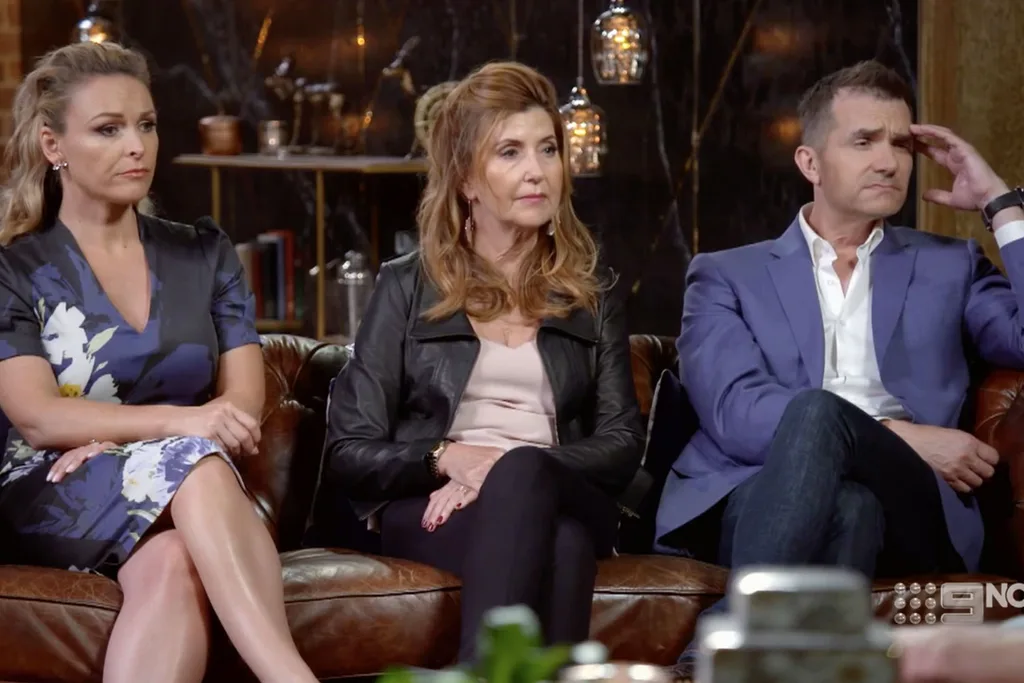
It’s not just Married At First Sight that has a duty of care to consider, but all reality television. In Australia, reality TV is a huge part of our day-to-day lives. From MAFS to The Bachelor to Survivor and now Love Island and Bachelor in Paradise, contestants are immediately known nationwide, critiqued online by both publications and fans on social media.
Married At First Sight’s Tracey Jewel revealed she had admitted herself into a mental health clinic, after overdosing while stranded in Europe last year. “I’ve been bullied and cyber-trolled relentlessly, pretty much all year,” she told New Idea, previously writing on Instagram, “You’ve won trolls. I give up. You’ve ruined my life. You’ve involved my friends, family, clients and sponsors. I have lost everything because of your relentless hate. Hope you’re happy you’ve claimed another one.”
Tully Smyth, a contestant on 2013’s Big Brother, spoke out about the toll reality TV has on mental health in a blog post saying that upon leaving the show, “You struggle to slip back into your old life… you’re broke… you’re exhausted. Emotionally, physically, mentally.”
Last year, Australian Survivor contestant Anneliese Wilson opened up about her mental health struggles while on the show, saying “I was always feeling so down and low. It’s hard to watch back knowing how I felt in those moments and looking at the position that I was in,” she told News.com.au.
Is it time that Australian reality series employ a standardised duty of care guaranteed to its contestants.

“The way I see it is that if we employ experts to give relationship advice, why don’t we employ experts on duty of care to ensure that participants’ mental health is being protected when on reality television”, Anzab says. “Our Networks aren’t privy to the unique guidelines which practitioners follow – so it only makes sense that a standardised expectation of duty of care be provided to all networks.”
“Mental health is on a decline, with almost 1 in 2 Australians experiencing a mental health condition at some point in their lifetime and with suicide rates on the rise, all our media networks need to campaign to safeguard our societies mental health and if that means standardised duty of care expectations then I say what are we waiting for, and why hasn’t this already been done?”
When it comes to the way forward, Anzab admits that it’s education rather than blame we need to focus on.
“Instead of accusing those who are participating in the unravelling of mental health, it may be more suitable to discuss alternate behaviours with them or establish safe boundaries around this. Instead of condemning, we should really look to educate – and establishing education around duty of care is the best place to start!”
